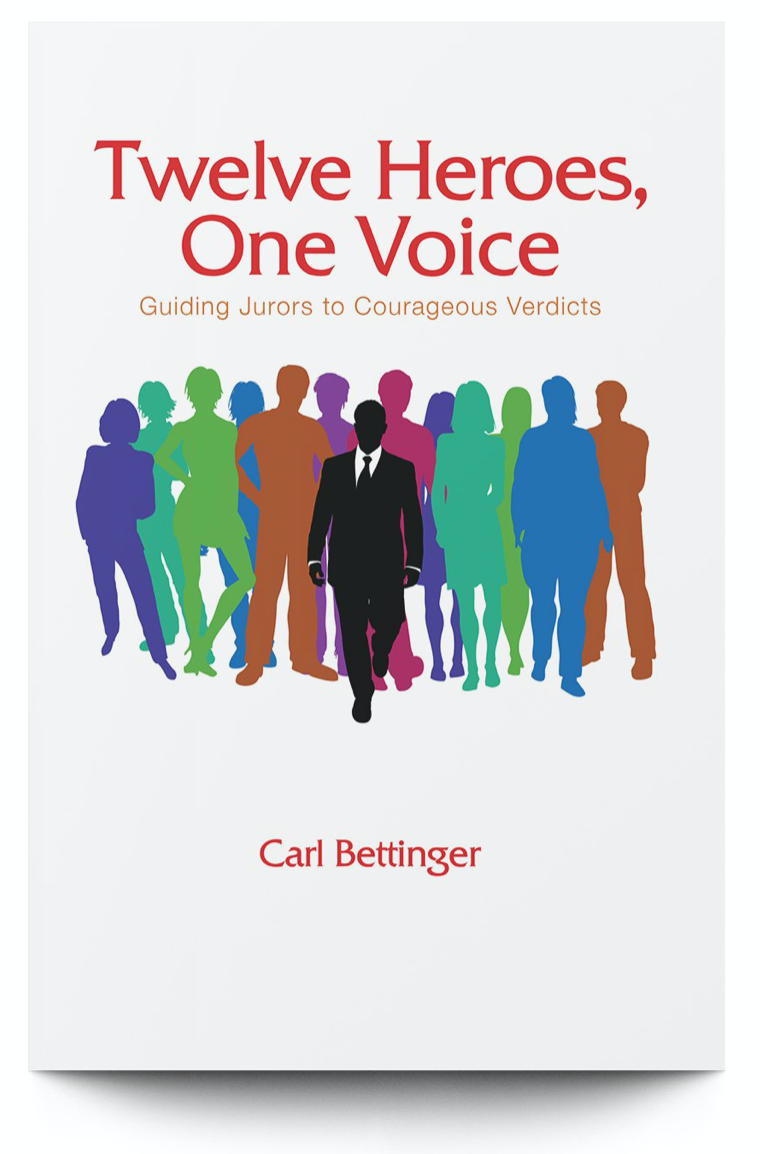Reviewed by Kathleen Nastri in Trial Magazine (July, 2012)
Trial lawyers committed to their craft will be taken to the next level by Twelve Heroes, One Voice: Guiding Jurors to Courageous Verdicts. Carl Bettinger’s book acknowledges some of the best resources on trial practice and then takes another step. He shows us how to use our storytelling skills and passion to make convincing presentations and win jurors’ hearts.
Bettinger, who has litigated hundreds of personal injury and medical malpractice cases, teaches the reader to look at each case with the same storytelling template, always beginning with "once upon a time" and ending with "until finally … and ever since then." The outline he uses seems to fit each case regardless of its facts and issues. The theory is that jurors can easily understand and relate to the storytelling structure; they will root for the victim and against the villain. They lawyer’s goal is to empower jurors to each the desired outcome.
Roles are assigned with the story template, with the client or the client’s family as the victim, and the plaintiff’s trial lawyer as the mentor. The jurors, of course, are the heroes. The defendant may or may not be the villain, and Bettinger’s advice on how to assign that role is both fascinating and enlightening as he navigates through difficult cases. For example, he recounts representing a severely disabled man who was sexually assaulted while in a residential care facility. Taking the spotlight off the sexual predator as the sole villain, Bettinger instead aimed it at the corporation that operated the facility and had reduced its staff after discovering rampant drug use. Desperate to fill open spots, it hired the predatory employee without any consideration of his background.
Twelve Heroes explores every phase of trial, from jury selection to closing arguments, combining specific advice with real examples of cases the author has tried and won. Bettinger also takes the reader through jury selection and explains how to establish credibility with jurors. In his chapter on opening statements, the author demonstrates how to set up the story and its characters and how to make jurors want to be his client’s heroes from the beginning. The theme continues with advice on how to keep the story interesting and consistent throughout direct and cross-examination. Bettinger ends his book with a powerful chapter on closing arguments in which he asks, "Do you want a song or a hit?"
Woven with examples of his own arguments and examinations, Twelve Heroes is short, interesting, and easy to read. There is nothing revolutionary or complicated about the advice or examples in the book, but by the end, a trial lawyer will feel that he or she can try a case in a completely new way.
Kathleen Nastri is an attorney with Koskoff Koskoff & Bieder in Bridgeport, Conn.
Reprinted with permission of Trial magazine (July 2012). Copyright © American Association for Justice, formerly Association of Trial Lawyers of America (ATLA®)

